Search Results
Showing results 281 to 300 of 308

Cookie Subduction
Source Institutions
This is a quick activity that shows how large amounts of rock and sediment are added to the edge of continents during subduction.
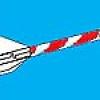
Rubberband Rockets
Source Institutions
This fun and simple activity is a rubberband rocket design challenge! Learners will explore how tail fins can help to stabilize a flying object, while also exploring potential and kinetic energy.
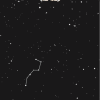
Constellation Detective
Source Institutions
In this quick activity, learners practice locating a constellation in a map of very dark skies.
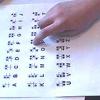
The Braille Alphabet
Source Institutions
In this activity (8th activity on the page) about the sense of touch, learners make their own set of Braille letters. Learners use glue to make raised dots on a Braille Alphabet Sheet.
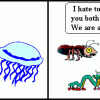
The Senses of "Unknown Creatures"
Source Institutions
In this activity, learners use earthworms as "unknown creatures" from the South American jungle to find out how animals use senses.
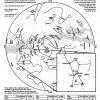
Supernova Star Maps
Source Institutions
This fun astronomy activity allows learners to experience finding stars in the night sky that will eventually go supernova. This activity is perfect for a star party outdoors.

Peripheral Vision
Source Institutions
How far can you see out of the corner of your eye? Grab a partner and find out from the Exploratorium Science Snack.
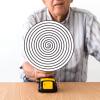
Depth Spinner
Source Institutions
Experience a spinning spiral...you won't be hypnotized, but you'll see what happens when you look away. It's like getting off a merry-go-round and everything keeps moving.
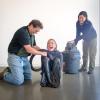
Feeling Pressured
Source Institutions
In this activity, learners (at least three) work together to explore the effects of atmospheric pressure.

Far-Out Corners
Source Institutions
Are there boxes, is this an illusion, or is this real life Q-bert? Illusions are always fun to build especially when you can build them.
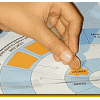
Light Quest
Source Institutions
Learners test their "light-smarts" by playing a game called "Light Quest!" The game board represents an atom and each player represents an electron that has been bumped into the atom's outer unstable
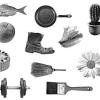
Memory Solitaire
Source Institutions
In this online game, learners practice memory recall. They are shown a collage of pictures for two minutes, then have to write down everything they remember and check how they did.
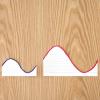
Soap-Film Interference Model: Get on our wavelength!
Source Institutions
By making models of light waves with paper, learners can understand why different colors appear in bubbles.

How can Clouds Help Keep the Air Warmer?
Source Institutions
In this activity, learners explore how air warms when it condenses water vapor or makes clouds.
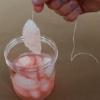
Ice Fishing
Source Institutions
In this activity, learners will use string and salt to lift an ice cube out of a glass of water. Salt depresses the freezing point of water, allowing it to melt around the string and refreeze.
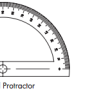
Pocket Protractor
Source Institutions
In this activity, learners create angle-measuring devices--protractors--out of paper. Learners follow a series of steps to fold a square sheet of paper into a triangular Pocket Protractor.
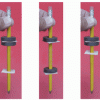
Magnetic Free Fall
Source Institutions
In this activity, learners use a pencil, magnets, and mat board to illustrate Newton's Second Law.

Geyser
Source Institutions
This Exploratorium activity can be used in many contexts because geysers are great opportunities for learning about heat and temperature changes as well as geological/space science phenomena.
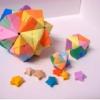
Paperfolding Polyhedrons
Source Institutions
In this activity (on pages 55-66 of PDF), learners fold paper into origami shapes and then combine several identical shapes into a three-dimensional structure.
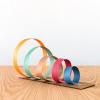
Resonant Rings
Source Institutions
Things that are different sizes and stiffness vibrate differently, and in this Exploratorium Science Snack, you'll see how rings of various diameters react to vibration and external forces.
